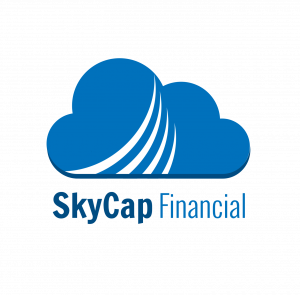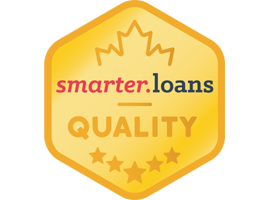Table of Contents
- Introduction
- No Credit Check Loans
- Quick Loans
- Installment Loans
- Benefits and Considerations
- How to Choose the Right Loan
- Frequently Asked Questions
- Conclusion
Introduction
In today’s financial landscape, many individuals face unexpected expenses and financial challenges that require immediate solutions. Whether it’s an emergency medical bill, a car repair, or a need to consolidate debt, finding the right type of loan is crucial. This article explores three popular loan options available in Canada: no credit check loans, quick loans, and installment loans. We will examine how each type works, their benefits, potential drawbacks, and help you decide which loan type is best suited for your financial needs.
No Credit Check Loans
No credit check loans are a type of loan designed for individuals who may have a poor credit history or no credit history at all. Unlike traditional loans, these loans do not require a hard credit inquiry, which means that your credit score will not be impacted by the loan application. Instead, lenders assess your eligibility based on other factors, such as your income, employment status, and overall ability to repay the loan.
One of the main advantages of no credit check loans is that they are accessible to borrowers who may not qualify for other types of loans due to their credit score. This makes them an attractive option for those with poor or limited credit history. The application process is typically simple and can often be completed online, with funds being disbursed quickly upon approval.
However, no credit check loans often come with higher interest rates and shorter repayment terms compared to traditional loans. The increased risk to the lender is compensated by charging borrowers higher fees. As a result, borrowers should exercise caution when taking out a no credit check loan and ensure that they can comfortably meet the repayment requirements.
How No Credit Check Loans Work
The process of obtaining a no credit check loan usually involves the following steps:
- Application: Borrowers fill out an online application form that includes basic personal information, proof of income, and banking details.
- Eligibility Assessment: Instead of checking credit scores, lenders evaluate the borrower’s ability to repay the loan based on income and employment stability.
- Approval and Funding: Once approved, the funds are typically deposited into the borrower’s bank account within 24 hours or even sooner.
No credit check loans can be a useful option for individuals in urgent need of cash who do not have the credit score required for traditional loans. However, it is important to be aware of the high cost of borrowing and to only use this option if you have a clear plan for repayment.
Quick Loans
Quick loans, as the name suggests, are loans that are designed to provide borrowers with fast access to funds. These loans are often used for emergencies, such as medical expenses, urgent home repairs, or other unexpected financial needs. The primary benefit of quick loans is the speed at which borrowers can receive the funds, often within minutes or hours of applying.
Quick loans are typically offered by online lenders, and the application process is straightforward. Borrowers can apply online, provide the necessary documentation, and receive an instant decision. If approved, the funds are transferred directly to the borrower’s bank account, making it an ideal solution for those who need money quickly.
Types of Quick Loans
There are several types of quick loans available, including:
- Payday Loans: Payday loans are short-term loans that are usually due on the borrower’s next payday. They are known for their fast approval process but come with high interest rates and fees.
- Online Personal Loans: Some lenders offer personal loans with a fast approval process. These loans may have longer repayment terms compared to payday loans, making them a more flexible option for borrowers.
- Line of Credit: A line of credit provides borrowers with access to a predetermined credit limit, allowing them to withdraw funds as needed. This can be a quick way to access cash without applying for a new loan each time.
Pros and Cons of Quick Loans
Quick loans have several advantages, including fast access to funds, minimal paperwork, and the convenience of online applications. However, they also have drawbacks, such as high interest rates and the potential for borrowers to fall into a cycle of debt if they are unable to repay the loan on time. It is important for borrowers to carefully consider their financial situation and ensure they can meet the repayment terms before taking out a quick loan.
Installment Loans
Installment loans are a type of loan that is repaid over a set period of time with fixed monthly payments. Unlike payday loans, which require repayment in one lump sum, installment loans provide borrowers with more flexibility by allowing them to spread out their payments over several months or even years. This makes installment loans a good option for those who need to borrow a larger amount of money and prefer predictable monthly payments.
How Installment Loans Work
The process of obtaining an installment loan is similar to that of other types of loans. Borrowers apply either online or in person, provide the necessary documentation, and receive a decision from the lender. If approved, the borrower receives the funds and agrees to repay the loan in fixed monthly installments over a specified term. The interest rate on an installment loan may be fixed or variable, depending on the lender and the borrower’s credit profile.
Benefits of Installment Loans
- Predictable Payments: Installment loans come with fixed monthly payments, which makes budgeting easier for borrowers.
- Longer Repayment Terms: The repayment period for installment loans can range from several months to several years, providing borrowers with more time to pay off the loan.
- Larger Loan Amounts: Installment loans often allow borrowers to access larger amounts of money compared to payday or quick loans.
Installment loans can be a good choice for individuals who need to finance larger expenses, such as home improvements, medical bills, or debt consolidation. However, it is important to compare offers from different lenders to find the best interest rate and terms.
Benefits and Considerations
Each type of loan—no credit check, quick, and installment—comes with its own benefits and considerations. Here’s a closer look at what borrowers should keep in mind:
- No Credit Check Loans: Accessible to those with poor or no credit, but typically have higher interest rates and shorter repayment terms. They should be used cautiously due to their high cost.
- Quick Loans: Provide fast access to funds, ideal for emergencies, but often come with higher interest rates and shorter repayment periods. Borrowers should ensure they can repay the loan to avoid falling into a debt cycle.
- Installment Loans: Offer predictable monthly payments and can be more affordable, but may require a better credit profile for favorable terms. They are suitable for larger expenses and provide more flexibility in repayment.
When considering which type of loan to choose, borrowers should evaluate their financial situation, the amount of money they need, and their ability to repay the loan. It is also important to consider the total cost of borrowing, including interest rates and fees, before making a decision.
How to Choose the Right Loan
Choosing the right loan depends on your individual financial situation and needs. Here are some factors to consider when deciding between no credit check loans, quick loans, and installment loans:
- Your Credit Score: If you have a poor credit score, a no credit check loan may be your best option. However, be prepared for higher interest rates.
- Amount Needed: If you need a small amount of cash quickly, a quick loan might be the right choice. For larger amounts, an installment loan may be more suitable.
- Repayment Ability: Consider your ability to repay the loan. Installment loans offer more manageable monthly payments, while quick and no credit check loans often require faster repayment.
- Urgency: If you need cash immediately, a quick loan can provide funds within hours. Installment loans may take longer to process, but offer better terms for larger amounts.
It is also important to compare offers from multiple lenders to find the best terms and interest rates. Borrowers should read the loan agreement carefully and ensure they understand the repayment schedule, fees, and any penalties for late payments.
Frequently Asked Questions
Can I get a loan without a credit check?
Yes, no credit check loans are available for individuals with poor or no credit. These loans do not require a traditional credit check, but often come with higher interest rates.
How fast can I get a quick loan?
Quick loans are designed to provide access to funds within minutes or hours of approval. The application process is usually fast and can be completed online.
What is the difference between a payday loan and an installment loan?
Payday loans are typically short-term loans that require repayment in one lump sum, while installment loans are repaid over a set period with fixed monthly payments. Installment loans often offer better terms for borrowers who need to borrow larger amounts.
Conclusion
No credit check loans, quick loans, and installment loans each serve different financial needs. Understanding the benefits and considerations of each loan type can help you make an informed decision based on your situation. Whether you need fast cash, a flexible repayment plan, or a loan that does not require a credit check, there are options available to suit your needs. Always remember to borrow responsibly and choose a loan that you can comfortably repay to avoid financial strain.
Before making a decision, take the time to compare different loan options, understand the terms and conditions, and consider your long-term financial health. Borrowing money can be a helpful tool in times of need, but it is essential to do so wisely and within your means.






